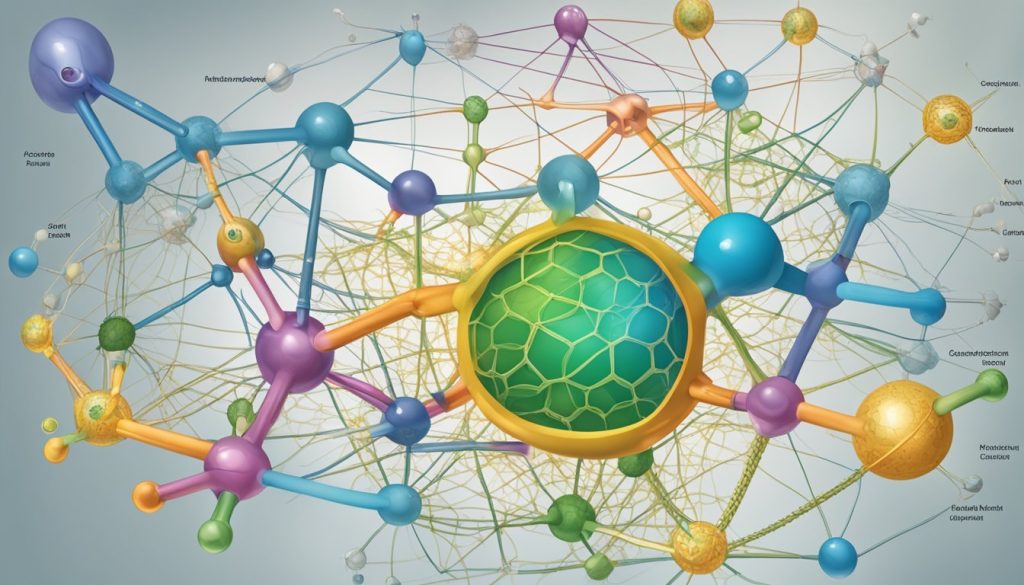Docosahexaenoic acid (DHA) stands as a cornerstone of brain health for carnivores. This long-chain omega-3 fatty acid plays a vital role in maintaining cognitive function and supporting the central nervous system. DHA is essential for optimal brain performance, influencing everything from memory and learning to mood regulation.
Carnivores who prioritize DHA in their diet may experience enhanced mental clarity and improved cognitive abilities. The brain relies heavily on this nutrient for its structure and function, making it crucial for those following a meat-based diet to ensure adequate intake. Sources rich in DHA include fatty fish like salmon, sardines, and mackerel.
Research suggests that incorporating sufficient DHA into a carnivorous diet can support overall brain health and potentially reduce the risk of cognitive decline as one ages. This omega-3 fatty acid also contributes to the proper development of the brain in fetuses and young children, highlighting its importance across all life stages.
Understanding DHA
DHA, or docosahexaenoic acid, is a crucial omega-3 fatty acid for brain health and function. This essential nutrient plays a vital role in the structure and performance of the central nervous system, particularly for those following a carnivore diet.
The Science of DHA
DHA is a long-chain polyunsaturated fatty acid found primarily in fish and marine algae. It contains 22 carbon atoms and 6 double bonds, giving it a unique molecular structure. This structure allows DHA to incorporate efficiently into cell membranes, especially in the brain and retina.
DHA comprises up to 30% of the fatty acids in the gray matter of the brain. It is particularly concentrated in synapses, the junctions between nerve cells where information is transmitted. The presence of DHA in these areas enhances membrane fluidity, which is critical for optimal neuronal function.
Research has shown that DHA levels in the brain are closely linked to dietary intake. Consumption of DHA-rich foods or supplements can increase brain DHA concentrations, potentially improving cognitive function.
DHA’s Role in the Central Nervous System
DHA is integral to the development and maintenance of the central nervous system. It supports neuronal growth, synapse formation, and neurotransmitter function. In infants, adequate DHA is crucial for proper brain and eye development.
In adults, DHA continues to play a vital role in:
- Neurotransmitter synthesis and release
- Synaptic plasticity
- Neuroprotection against oxidative stress
- Regulation of neuroinflammation
Studies have linked higher DHA levels to improved cognitive performance, particularly in areas such as memory and learning. DHA may also help protect against age-related cognitive decline and neurodegenerative diseases.
Omega-3 Fatty Acids and Brain Health
DHA is one of three main omega-3 fatty acids, alongside EPA (eicosapentaenoic acid) and ALA (alpha-linolenic acid). While all omega-3s are important for health, DHA is particularly crucial for brain function.
The brain preferentially incorporates DHA over other omega-3s. This selectivity underscores DHA’s unique importance in maintaining optimal neuronal function and structure.
Research has shown that omega-3 fatty acids, especially DHA, may help:
- Reduce the risk of depression and anxiety
- Improve attention and focus in individuals with ADHD
- Support overall cognitive function throughout life
For carnivores, obtaining sufficient DHA can be challenging. While the body can convert some ALA to DHA, this process is inefficient. Consuming DHA-rich animal sources, such as fatty fish, is often necessary to meet the brain’s DHA requirements.
Nutritional Sources of DHA
DHA is primarily found in marine-based foods and certain supplements. Understanding the key sources of this crucial fatty acid is essential for those following a carnivore diet.
Dietary Intake of Omega-3s
Fatty fish are the best natural sources of DHA. Salmon, mackerel, sardines, and herring contain high levels of this omega-3 fatty acid. Tuna, especially bluefin and albacore, also provide significant amounts of DHA.
Other seafood options rich in DHA include:
- Oysters
- Mussels
- Anchovies
- Trout
Wild-caught fish generally have higher DHA content compared to farm-raised varieties. This is due to their natural diet of algae and smaller fish.
Fish Oil and Algae as DHA Sources
Fish oil supplements are a concentrated source of DHA. These are derived from the tissues of oily fish and can be an efficient way to increase DHA intake. Cod liver oil is particularly rich in DHA and also provides vitamins A and D.
Algae-based supplements offer a plant-based alternative for those who avoid fish products. These are suitable for vegetarians and vegans, providing a direct source of DHA without the need for fish consumption.
Implications of a Carnivore Diet
A strict carnivore diet may limit DHA intake if it excludes fish. Red meat and poultry contain minimal amounts of DHA compared to seafood. Grass-fed beef has slightly higher levels of omega-3s than grain-fed, but it’s still not a significant source.
To ensure adequate DHA intake on a carnivore diet:
- Prioritize fatty fish consumption
- Consider fish oil or algae-based supplements
- Include organ meats, which have higher nutrient density
Careful dietary planning is crucial to meet DHA requirements while adhering to carnivore principles. Regular blood tests can help monitor omega-3 levels and guide dietary choices.
DHA and Brain Development

DHA plays a crucial role in brain development from fetal stages through early childhood. This essential fatty acid supports cognitive function, neural growth, and proper brain structure formation during critical developmental periods.
Role of DHA in Fetal Brain Growth
DHA accumulates rapidly in the fetal brain during the third trimester of pregnancy. It contributes to the formation of neural membranes and supports synapse development. Adequate maternal DHA intake is essential for optimal fetal brain growth.
Studies show that higher DHA levels during pregnancy correlate with improved cognitive outcomes in infants. DHA helps form the structural components of brain cells, promoting proper neurotransmitter function.
Fetal DHA accumulation peaks in the last 5 weeks of pregnancy. This coincides with a period of rapid brain growth and development of important brain structures.
The Impact of DHA on Infants
Infants require high levels of DHA for continued brain development after birth. Breast milk naturally contains DHA, supporting cognitive growth in breastfed babies.
DHA supplementation in formula-fed infants has been linked to:
- Improved visual acuity
- Enhanced problem-solving skills
- Better attention span
Research indicates that infants with higher blood DHA levels show more advanced cognitive development by 18 months of age.
DHA continues to accumulate in the brain at high rates through the first two years of life, supporting ongoing neural growth and myelination.
Cognitive Development in Early Childhood
DHA remains important for brain health and cognitive function throughout early childhood. It supports:
- Memory formation
- Language acquisition
- Executive function skills
Children with higher DHA intake tend to perform better on tests of cognitive abilities. This includes improved reading skills, mathematical proficiency, and behavioral focus.
DHA supplementation in preschool-aged children has been associated with enhancements in:
- Verbal intelligence scores
- Learning capacity
- Fine motor skills
Adequate DHA levels help maintain optimal brain cell communication as cognitive abilities rapidly develop during the early childhood years.
DHA’s Influence on Aging and Cognitive Decline

DHA plays a vital role in maintaining cognitive health as we age. It supports brain function, protects against neurodegenerative diseases, and may help preserve memory and cognitive abilities in older adults.
Neurodegenerative Diseases and DHA
DHA has shown promise in addressing neurodegenerative conditions like Alzheimer’s disease. Research indicates that low DHA levels are associated with an increased risk of cognitive decline and dementia.
Studies have found that DHA supplementation may:
- Reduce beta-amyloid plaques in the brain
- Decrease inflammation linked to neurodegeneration
- Improve synaptic function and neuronal communication
DHA’s neuroprotective effects could potentially slow the progression of Alzheimer’s and other age-related cognitive disorders. However, more research is needed to fully understand its therapeutic potential.
Cognitive Outcomes in the Aging Population
DHA intake appears to positively influence cognitive outcomes in older adults. Higher blood levels of DHA have been linked to:
- Better memory performance
- Improved executive function
- Enhanced learning ability
- Faster information processing speed
A diet rich in DHA may help maintain cognitive function as people age. Some studies suggest that regular DHA consumption could delay age-related cognitive decline by several years.
Long-term DHA supplementation shows particular promise for preserving cognitive abilities in healthy older adults. However, results vary, and more research is needed to determine optimal dosages and duration of use.
DHA’s Neuroprotective Properties
DHA exhibits several neuroprotective properties that contribute to brain health in aging populations. These include:
Anti-inflammatory effects: DHA reduces neuroinflammation, a key factor in cognitive decline.
Antioxidant action: It helps protect brain cells from oxidative stress and damage.
Neuroplasticity support: DHA promotes the formation of new neural connections.
Cell membrane integrity: It maintains the fluidity and function of neuronal membranes.
Neurotransmitter regulation: DHA influences the release and uptake of important brain chemicals.
These properties help maintain brain structure and function, potentially mitigating age-related cognitive changes. Ongoing research aims to fully elucidate DHA’s neuroprotective mechanisms and their impact on brain aging.
DHA’s Role in Mental Health
DHA plays a crucial role in supporting mental health and cognitive function. This essential fatty acid impacts mood regulation, anxiety levels, and various psychiatric conditions through its effects on brain structure and neurotransmitter systems.
Depression and Mood Disorders
DHA supplementation shows promise for alleviating symptoms of depression and mood disorders. Studies indicate that individuals with depression often have lower blood levels of DHA compared to healthy controls. Increasing DHA intake may help stabilize mood by:
- Reducing inflammation in the brain
- Supporting neurotransmitter production and signaling
- Improving cell membrane fluidity and receptor function
Some research suggests DHA could enhance the effectiveness of antidepressant medications when used as an adjunct therapy. However, more studies are needed to fully understand optimal dosing and long-term effects.
Anxiety and Cognitive Function
DHA contributes to reducing anxiety and supporting cognitive performance. Key benefits include:
- Lowering cortisol levels and stress responses
- Enhancing neuroplasticity and forming new neural connections
- Improving working memory and information processing speed
Regular DHA consumption may help protect against age-related cognitive decline. It supports the maintenance of healthy brain structure and function across the lifespan.
DHA and Psychiatric Disorders
DHA shows potential in managing symptoms of various psychiatric disorders. Research areas include:
- Attention deficit hyperactivity disorder (ADHD)
- Bipolar disorder
- Schizophrenia
DHA’s anti-inflammatory properties and role in neurotransmitter regulation may contribute to its therapeutic effects. While promising, more clinical trials are needed to establish optimal treatment protocols for specific conditions.
Some studies suggest DHA supplementation could reduce the risk of developing certain psychiatric disorders, particularly when provided during critical periods of brain development.
Biochemical Pathways of DHA

DHA plays a critical role in brain function through several interconnected biochemical pathways. Its incorporation into cellular structures and involvement in signaling processes are essential for optimal neuronal health and activity.
The Role of Phospholipids and PUFA
DHA is a polyunsaturated fatty acid (PUFA) that integrates into phospholipids, key components of cell membranes. In the brain, DHA-containing phospholipids are particularly abundant in neuronal membranes.
These specialized phospholipids contribute to membrane fluidity and flexibility. This structural characteristic is crucial for proper neurotransmitter release and receptor function.
DHA’s unique molecular structure, with its six double bonds, allows for rapid changes in membrane shape. This property is essential for processes like vesicle fusion and neurotransmitter release.
DHA’s Impact on Neuronal Membranes
DHA incorporation significantly alters the biophysical properties of neuronal membranes. It increases membrane permeability and influences the formation of lipid rafts.
These changes affect the activity of membrane-bound proteins, including ion channels and receptors. DHA-rich membranes show enhanced synaptic plasticity, a key factor in learning and memory.
DHA also promotes the growth of neurites, the projections that form synapses between neurons. This process is crucial for establishing and maintaining neural networks.
Signaling Pathways Affected by DHA
DHA influences various signaling pathways in neurons. It acts as a precursor for bioactive molecules like neuroprotectins and resolvins.
These DHA-derived compounds have potent anti-inflammatory and neuroprotective effects. They help regulate immune responses in the brain and support neuronal survival.
DHA also modulates gene expression through its interaction with nuclear receptors. It can activate transcription factors that regulate genes involved in neuronal growth and synaptic function.
Additionally, DHA affects neurotransmitter systems, particularly those involving serotonin and dopamine. This influence contributes to its potential role in mood regulation and cognitive function.
Clinical Trials and Research Findings
Clinical trials and scientific studies have revealed compelling evidence for the importance of DHA in brain health. Research has examined DHA’s impacts on cognitive abilities and led to dietary recommendations from health authorities.
Evidence from Neuroscientific Studies
Brain imaging studies demonstrate DHA’s critical role in neuronal growth and signaling. Research indicates DHA supports membrane fluidity and neurotransmitter function. Animal studies show DHA deficiency can impair learning and memory formation.
Human trials have found correlations between blood DHA levels and brain volume in healthy adults. Higher DHA intake is linked to increased gray matter in areas involved in memory and emotion regulation. Some studies suggest DHA supplementation may slow brain atrophy rates in older adults.
DHA and Cognitive Abilities
Clinical trials have examined DHA’s effects on various cognitive domains. Studies in children indicate DHA supplementation can improve reading skills and behavior in some cases. In adults, research has explored DHA’s potential to enhance working memory and reaction time.
Results are mixed regarding DHA’s impact on age-related cognitive decline. Some trials show modest benefits for memory and learning in older adults taking DHA supplements. However, other studies have found no significant effects on cognitive test performance.
Current Dietary Recommendations
Based on available evidence, several health organizations have issued DHA intake guidelines. The European Food Safety Authority (EFSA) recommends 250 mg of EPA+DHA daily for adults. For pregnant and lactating women, they suggest 100-200 mg additional DHA per day.
The American Heart Association advises eating fish twice weekly to obtain omega-3 fatty acids, including DHA. For those with coronary heart disease, they recommend considering EPA+DHA supplements under medical supervision.
Some experts argue current recommendations may be too low for optimal brain health. More research is needed to determine ideal DHA intakes across different life stages and health conditions.
DHA in the Prevention and Management of Diseases
DHA plays a crucial role in preventing and managing various neurological conditions. Its anti-inflammatory properties and neuroprotective effects make it a valuable nutrient for brain health.
Inflammation, Neuroinflammation, and DHA
DHA exhibits potent anti-inflammatory properties that can help combat both systemic and neuroinflammation. It reduces the production of pro-inflammatory cytokines and increases anti-inflammatory mediators.
In the brain, DHA helps maintain the integrity of the blood-brain barrier, limiting the entry of inflammatory molecules. This protective effect is particularly important in preventing neuroinflammation-related disorders.
Studies have shown that DHA supplementation can decrease markers of inflammation in various neurological conditions. This reduction in inflammation may help slow the progression of neurodegenerative diseases and improve cognitive function.
Preventing Cerebrovascular and Neurodegenerative Disorders
DHA’s neuroprotective effects extend to the prevention of cerebrovascular and neurodegenerative disorders. It helps maintain proper blood flow to the brain, reducing the risk of stroke and other vascular problems.
In Alzheimer’s disease, DHA has been found to reduce the accumulation of beta-amyloid plaques, a hallmark of the condition. It also supports synaptic plasticity and neuronal survival, which are crucial for maintaining cognitive function.
Research suggests that higher DHA intake is associated with a lower risk of developing Parkinson’s disease. The fatty acid’s antioxidant properties may help protect dopaminergic neurons from oxidative stress and damage.
DHA in Post-Stroke Cognitive Recovery
DHA plays a significant role in post-stroke cognitive recovery. It helps reduce inflammation and oxidative stress in the brain following a stroke, potentially limiting the extent of damage.
Studies have shown that DHA supplementation can improve neuroplasticity, enhancing the brain’s ability to form new neural connections. This process is crucial for recovery of cognitive functions after a stroke.
DHA also supports the growth of new blood vessels in the brain, a process called angiogenesis. This can help improve blood flow to damaged areas, potentially aiding in the recovery of affected brain regions.
